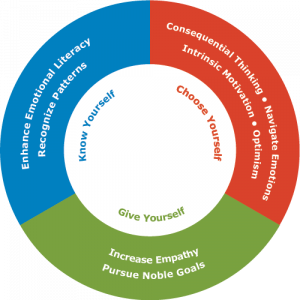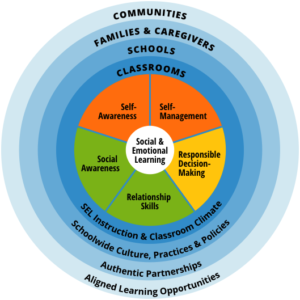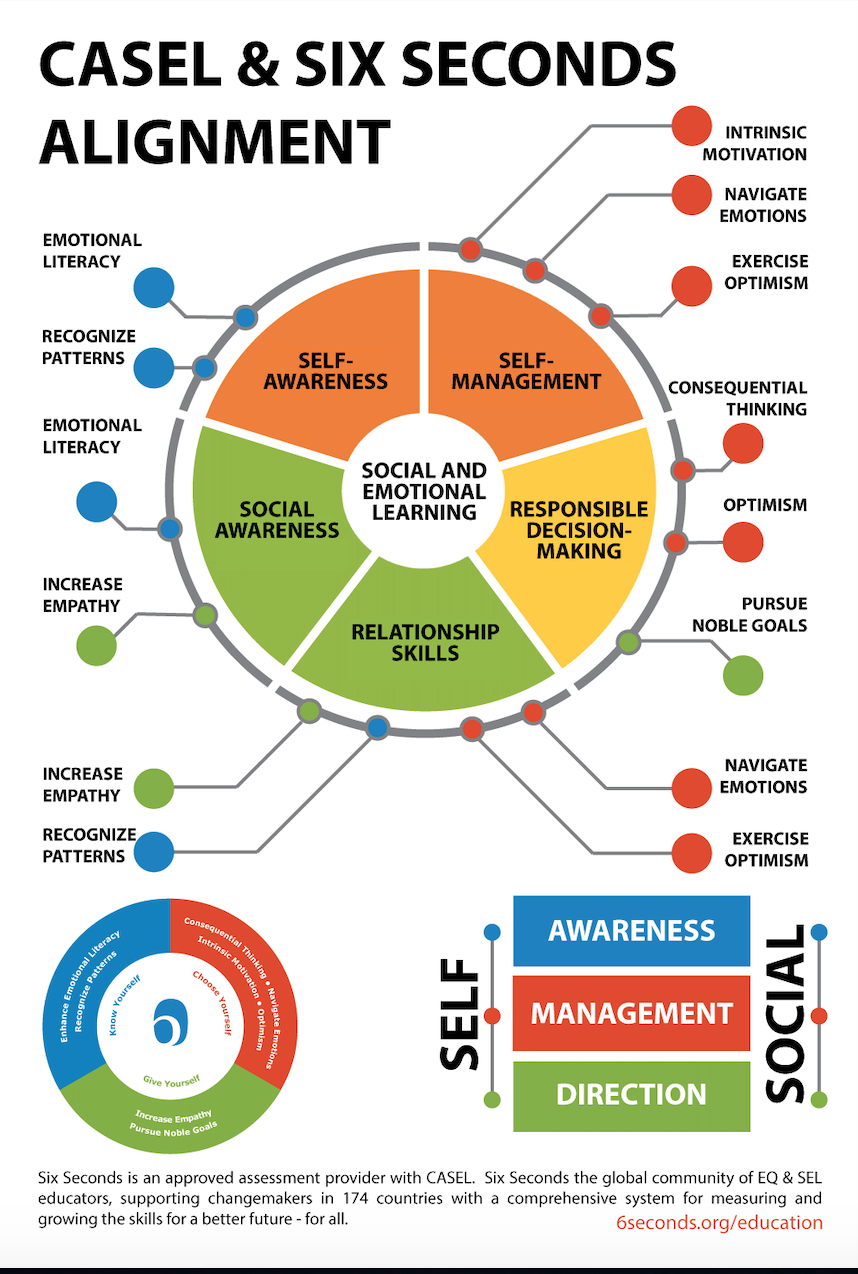Six Seconds -CASEL Alignment
The Six Seconds EQ Model moves the CASEL competencies into action.
Six Seconds and CASEL
Six Seconds is a Founding Member of the SEL Provider’s Council, originally created by CASEL, and the SEI-YV and SEI-pYV assessments are listed in the CASEL Assessment Guide. The Six Seconds Model moves the CASEL competencies into action, with specific emotional intelligence skills fueling the 5 key outcomes in the CASEL Wheel.
Here’s a comparison of the Six Seconds Model of Emotional Intelligence and the CASEL 5, and you can download a detailed alignment chart below.
Ready to implement evidence-based SEL solutions? Contact us and tell us about your most pressing needs.
Six Seconds Model of Emotional Intelligence
The Six Seconds Model of Emotional Intelligence consists of 3 pursuits – Know Yourself, Choose Yourself and Give Yourself – which are fueled by 8 emotional intelligence skills, or competencies. They’re measured through the Six Seconds Emotional Intelligence Assessment – or SEI. Here are the eight competencies – with definitions below.
Know Yourself
Clearly seeing what you feel and do.
Emotions are data, and these competencies allow you to accurately collect that information.
Choose Yourself
Doing what you mean to do.
Instead of reacting “on autopilot,” these competencies allow you to proactively respond.
Give Yourself
Doing it for a reason.
These competencies help you put your vision and mission into action so you lead on purpose and with full integrity.
Read more about the Six Seconds Model →

CASEL Wheel
The CASEL Wheel or CASEL 5 consists of five broad and interrelated areas of competence: self-awareness, self-management, social awareness, relationship skills, and responsible decision-making.
SELF-AWARENESS: The abilities to understand one’s own emotions, thoughts, and values and how they influence behavior across contexts.
SELF-MANAGEMENT: The abilities to manage one’s emotions, thoughts, and behaviors effectively in different situations and to achieve goals and aspirations.
SOCIAL AWARENESS: The abilities to understand the perspectives of and empathize with others, including those from diverse backgrounds, cultures, & contexts.
RELATIONSHIP SKILLS: The abilities to establish and maintain healthy and supportive relationships and to effectively navigate settings with diverse individuals and groups.
RESPONSIBLE DECISION-MAKING: The abilities to make caring and constructive choices about personal behavior and social interactions across diverse situations.
Read more about the CASEL Wheel →


CASEL and Six Seconds Alignment Chart
Download this free chart showing the overlap between the Six Seconds Model of Emotional Intelligence and the CASEL Wheel.
Featured Articles
How to Teach Children Emotional Intelligence for a Better World
When feelings run hot, how can we use emotional intelligence to fuel our commitment for positive change… and support children to create a better world?
Supporting Children’s Rights through Strong Relationships
Mutually respectful relationships are a foundation for human rights. So how can children & adults use emotional intelligence to strengthen relationships?
Teaching Emotional Intelligence Like a Snake Charmer
Like charming snakes requires special skills, teaching EQ in schools gives students training for life to help make positive choices and healthy relationships.
Studying EQ in a Rural Appalachian Highschool
Can a 10-week EQ Course change the Emotional Intelligence scores of students in a rural Appalachian high school class? Eastern Kentucky is comprised of tiny towns tucked into valleys between the steep Appalachian Mountains in the heart of coal country. The region has...
Middle School Climate & Learning – AERA research
New research is shedding light on what middle schoolers are feeling about school and learning — and what makes social emotional learning (SEL) effective for young adolescents. They crave authenticity and connection, but are not finding these at school.
The Case for Social Emotional Learning
What is emotional intelligence and why does it matter in education? What does current research say about “social emotional learning”?
- Emotional Intelligence at Work:In the Era of AI, What Happens to Human Skills? - November 19, 2024
- Fortifying the Mental Health of the Entire School Community with Emotional Intelligence - October 30, 2024
- Emotional Intelligence at Work: Exploring the Principles of Exceptional Leaders - October 15, 2024







A perfect statistical chart. This information is quite necessary in some cases.